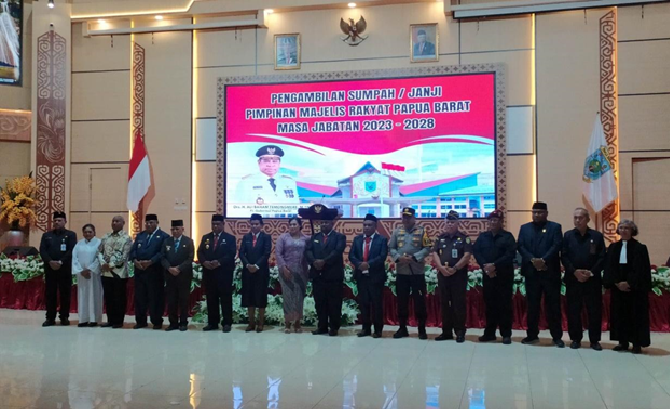POLITICS – Papuan Indigenous People (OAP) or in indonesia we spell “Orang Asli Papua” have their own place in the Special Autonomy policy implemented in the Provinces of Papua and West Papua. Accelerating development and equal distribution of prosperity makes Special Autonomy something that is right and must be done in Papua. So when talking about these two things, the subject and at the same time the object that is the center of attention for policy is the local community who are native and have lived in the Papua region for a long time. Papuan Indigenous People (OAP) are subjects and objects in the policies resulting from the applicable Special Autonomy.
Privileges for Indigenous Papuans (OAP) are put forward in the process of carrying out Special Autonomy in Papua. Starting from the mandatory requirements for regional leaders, namely the Governors of Papua and West Papua Provinces who must be OAP and also the policies that ultimately follow, adapt, support and preserve customary laws that were in effect long before Special Autonomy was implemented.
The central government’s seriousness in granting Special Autonomy authority to regional governments in Papua is written in Article 1 of the Special Autonomy Law which provides an elaboration of the definitions of adat, customary communities, customary law, customary law communities, customary rights and indigenous Papuans. The elaboration of the definition indicates that the term is mentioned repeatedly in the law
Indigenous community organizations or institutions are given special funds amounting to 2.25% of the total General Allocation Fund (DAU). The goal, of course, is to ensure that the existing customs, including the community and what is in it, are maintained. Customary laws that are continuously inherited will also continue to apply in the future, supported by binding laws from the regional government and the central government.
Indigenous Papuans (OAP) and the customary laws that are still treated are an ideal embodiment of the policies and Special Autonomy Law that exist in Papua and West Papua Provinces. Freedom in regulating authority is given to the local community but without violating the 1945 Constitution of the Unitary State of the Republic of Indonesia and of course the Pancasila Ideology.
Aspirations, criticism, and suggestions from Indigenous Papuans (OAP) are given a special place as an award. In fact, a number of special seats have been given to indigenous peoples in the Papuan People’s Representative Council (DPRP) or Regency/City People’s Representative Council (DPRK) without the need for an election process. The aim is of course to ensure that ideas are absorbed and also monitored regarding how customary law is actually given a place in Special Autonomy. The Papuan People’s Council (MRP) was also formed as a form of representation of the Papuan people and customary law.


